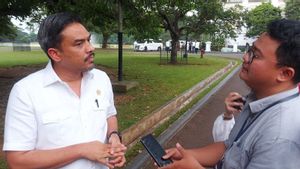JAKARTA - Researchers from the Babraham Institute have developed a method to engineer human skin cells to look 30 years younger. As quoted by ANTARA from Science Alert, Friday, April 29, they are currently in the early stages and it is hoped that their discovery could play a role in producing regenerative drugs capable of undoing some of the damaging consequences of aging.
One point highlighted in the study, published in the journal eLife, is that skin cells are reprogrammed to become biologically younger while retaining some of their functions. The process used here is based on the work of Nobel Prize winner Shinya Yamanaka in 2007. Yamanaka transforms normal cells with specific functions into stem cells that can develop into any type. This means, however, that the cell will lose its specific identity.
"Our understanding of aging at the molecular level has evolved over the last decade, giving rise to techniques that allow researchers to measure age-related biological changes in human cells," said study leader and biologist from the Babraham Institute in the UK, Dr. Diljeet Gil.
"We were able to apply this to our experiments to determine the extent of reprogramming that our new method achieves." The new method, later called maturation phase transient reprogramming, worked 13 days or faster than the Yamanaka team's 50-day experiment.
Various measures including epigenetic clocks or chemical labels that indicate cell age and transcriptomes (the reading of genes produced by cells), are used to confirm skin cells are three decades younger in biological age.
"We have shown cells can be rejuvenated without losing their function and rejuvenation appears to restore some function to senescent cells," Gill said. Until now, scientists have not fully understood the mechanics behind this programming.
On the health front, there are a plethora of age-related issues that must be addressed as we age ranging from heart disease to Alzheimer's. It is hoped that the research developed at this time will be useful in finding ways to overcome the development of this problem.
"Ultimately, we may be able to identify rejuvenating genes without reprogramming, and specifically target those genes to reduce the effects of aging," said molecular biologist Wolf Reik of the Babraham Institute.
The English, Chinese, Japanese, Arabic, and French versions are automatically generated by the AI. So there may still be inaccuracies in translating, please always see Indonesian as our main language. (system supported by DigitalSiber.id)













